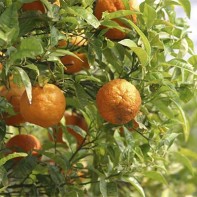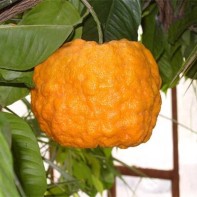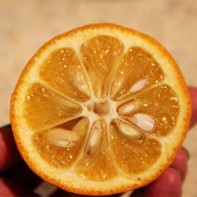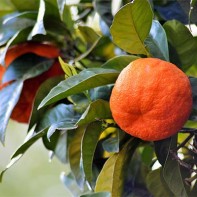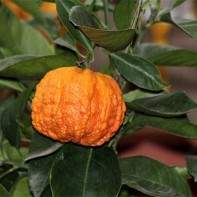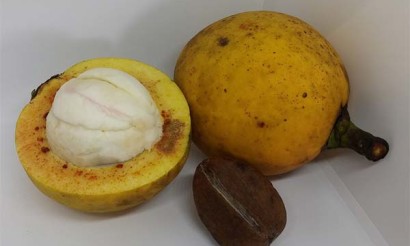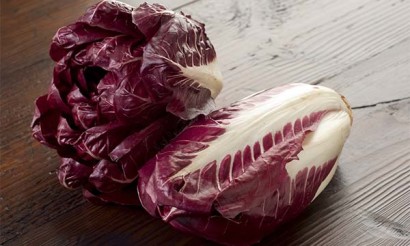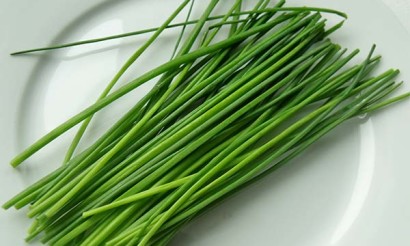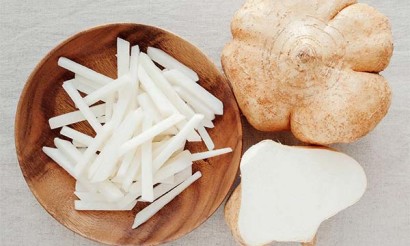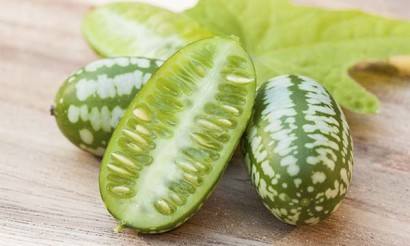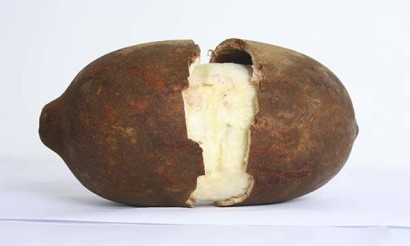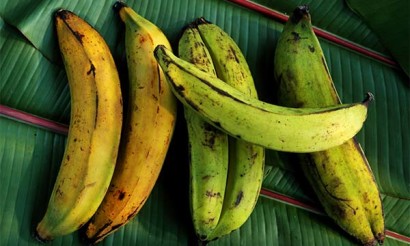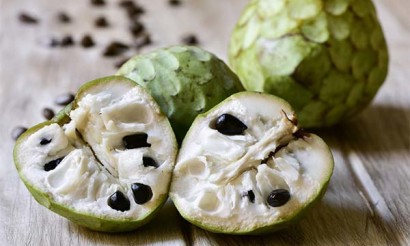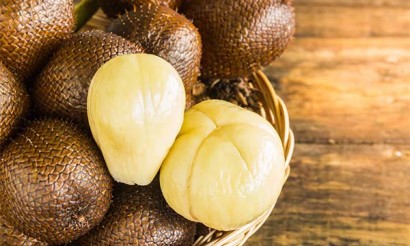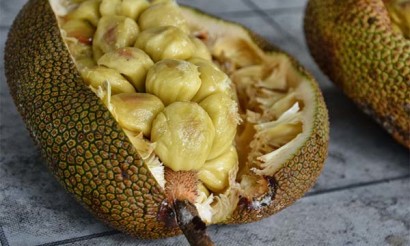Pomeranian: what kind of fruit is it and why is it useful?
It is commonly believed that the citrus types of fruit include lemons, oranges, mandarins and pomelos. However, few people know that there is a bitter type of citrus, which is not consumed in food, but valued for something else - medicinal and cosmetic properties.
- What kind of fruit it is.
- What it looks like
- Where it grows
- What is the usefulness of the pomeranian fruit
- What harm can it do?
- How to eat Pomeranian Fruits correctly
- What can be cooked from sour orange
- Topical Uses in Folk Medicine
- Cosmetic Applications
- How to grow Pomeranian berries
- Oriental Medicine
What is the fruit?
The Bitter Orange, or Pomeranian, is one of the most unique and healthful citrus fruits. It is a hybrid of mandarin and pomelo, which is not a result of breeding, but a natural result. When the trees of these fruits were growing next to each other, there was a crossbreeding, which resulted in a new type of citrus - Pomeranian.
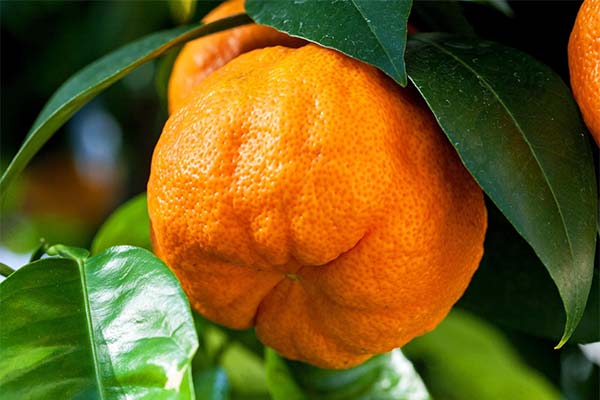
The value of the fruit is not in its ability to be consumed as food, but in the fact that all parts of the plant are widely used to produce medicinal and cosmetic products. Other names for the Pomeranian are cinotto, bigardia, chinotto, and of course, bitter orange.
What it looks like
The orange bean is a ball-shaped fruit, most often flattened at the sides. On average they are about 7 centimeters in diameter. Like all citrus fruits, it is covered with a hard skin with small tubercles of bright orange color. It is easy to peel from the ripe fruit. The flesh has a sour-sweet taste and is slightly bitter. Inside there are large seeds and fleshy white septa. The flesh is long and consists of 10-12 segments.
It ripens in the winter months of November and December. Pomeranian bears a strong resemblance to some varieties of mandarin. Therefore, it is quite difficult to distinguish them, especially to a person not well versed in citrus. However, the bitter orange contains more essential oils, which gives it its strongest citrus aroma.
Where it grows
Pomeranian is a tree-like, evergreen plant that, on average, does not grow taller than three meters. In exceptional cases it can reach 10 meters in height. It belongs to the ruta family, a citrus genus. It is found in southern and eastern Asia, China, the Himalayas and the Caucasus, as well as in western India.
No wild forms of orange blossom have been identified, but it is native to Southeast Asia. It blooms in small white inflorescences, exuding a fragrant aroma. Cultivate it and in room conditions for decorative purposes.
What is the usefulness of Pomeranian fruit?
The composition of the bitter orange is unique. It contains vitamins, a range of organic acids, carbohydrates, substances that can kill pathogenic microflora, viruses, fungi. The greatest value are essential oils contained in the peel of the fruit. They contain many valuable components. Aromatic oil is also obtained from the flowers of orange blossom, which also has beneficial for the human body chemical compounds.
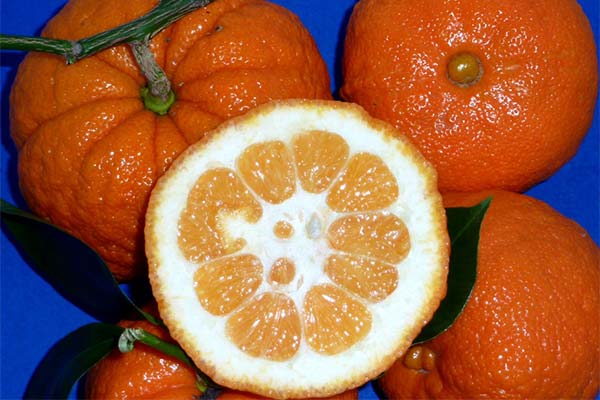
Bitter orange promotes:
- immunity;
- good metabolism;
- Rapid hematopoiesis process;
- reduction of negative factors on the body after taking antibiotics;
- rapid decomposition and elimination of toxic substances from the body;
- relief of fatigue and muscle soreness;
- relief of headaches;
- prolongation of youth and preservation of high vitality.
Pomeranian, thanks to the presence of alkaloids, kills viruses and bacteria, which makes it a natural antiviral agent. Often the essential oil is used for massages and rubbing, which improves the functionality of the nervous system, blood and lymph flow. Indispensable infusions of bitter orange in the purification of the body from toxins, during poisoning, after heavy drinking. Detox diets based on the fruit help cleanse the digestive tract, perfectly clean all organ systems.
How can it do harm?
Biological supplements based on sour orange when not dosed can cause harm. They are not compatible with alcoholic beverages, certain medications, strong black tea and coffee. An overdose of the active substances of citrus can lead to nervous overstimulation, headaches and tachycardia.
The fruit is completely contraindicated in:
- Pregnancy and breastfeeding.
- Allergic reactions or inflammation of the skin (if used as a component of cosmetics).
- Under three years of age.
Contraindicated bitter orange and with individual intolerance. In any case, before its use, even in medicines, should consult a doctor.
Very carefully use the juice and essential oils of the fruit in gastric diseases in the stage of their exacerbation. This is an ulcer, gastritis. On mucous membranes and skin, citrus juice and oils in pure form can cause allergies. It is not necessary to engage in self-medication, and if you really want to improve health and nourish the body with useful substances, you can drink fragrant tea with the addition of citrus. Or indulge yourself with aromatherapy based on sour orange essential oils.
How to eat Pomeranian
Pomeranian is unpalatable fresh, as it has a sour and bitter taste. However, for culinary purposes, use the useful peel of the fruit, which gives the taste of dishes a special citrus note and can serve as a natural dye. You peel it the same way you peel a regular orange.
What can be cooked from sour orange
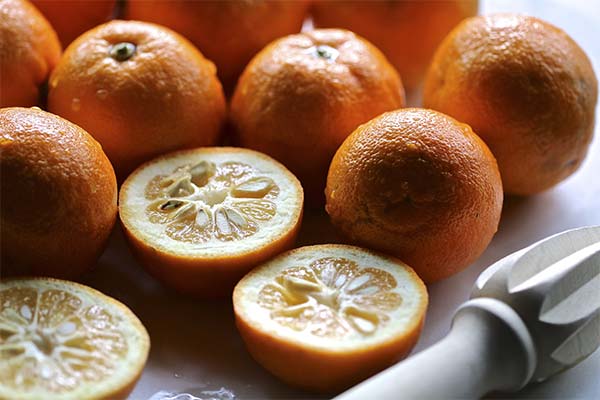
To prepare the peel, the pomeranian is cut into four pieces so that the skin is separated more easily. Spread it out on a horizontal surface and dry it for several days, turning it frequently. The brittleness of the skin is an indication that it is ready. The zest of the fruit and its juice are often used to give a certain flavor to ice cream. They also add these valuable citrus ingredients to confectionery products - cupcakes, cakes, pastries, cottage cheese desserts. Both in the dough and in the cream. Once added, the cream takes on a tangy, bitter taste with a pronounced citrus flavor.
To give white products, for example, cream, cottage cheese or rice, the zest of bitter orange is added, which colors it a light yellow color. This is a natural and very useful dye. It can also be added to sweet jams, jams, compotes, kissels. For flavoring add dried peel of orange and in meat gravy, sauces. Excellent combines with fish products, combines well with meat or poultry dishes.
Traditional medicinal uses
Since the composition of the orange blossom is really unique, in folk medicine he found many applications. In the East, the essential oils of this fruit are particularly popular. The biological activity of the bitter orange is in many ways superior to its congeners - lemon, mandarin and regular orange. Pomeranian is considered by oriental healers to be an energy source, restoring strength and vitality.
In addition to its tonic properties, the fruit has the following qualities:
- Strengthens blood vessels, heart muscle, immune system.
- Painkillers.
- It is a natural antiseptic.
- It has anti-inflammatory and anti-rheumatic properties.
- Good for the skin - increases skin elasticity, prevents aging, reduces pores.
- Helps to improve mental performance.
From colds and viral infections prepare citrus juice, which rinse the throat and nasopharynx passages. Use it with sugar as a choleretic, for high blood pressure, fevers and hangover. Tampons soaked in useful juice are applied to the nose in case of bleeding.
For vomiting, indigestion, stomach ailments, for cleansing blood vessels and strengthening the heart, powder from the peel of a bitter orange is used. It also helps with migraines, if you mix the zest with vinegar and use as a compress.
Often dried flowers of orange blossom are used as part of medicinal gatherings. Together with other valuable herbs they improve appetite, aid in good digestion, help cope with insomnia, calm the nerves and even treat depression. In some cases, orange blossom extract is added to laxative dietary supplements to gently establish intestinal peristalsis. Their action is delicate, which is especially important for certain digestive diseases.
Cosmetic applications
The main feature of orange blossom is its ability to act beneficially on the skin, restoring turgor. Its use in cosmetology can rejuvenate the skin, cope with blackheads and acne, reduce pores on oily skin. Therefore, essential oils, extracts and dried flowers of the fruit are used to produce creams, lotions and gels. They actively fight aging skin, making it supple, fresh and smooth. They add orange peel in deodorants, toilet water, perfume. A pronounced, pleasant citrus flavor is just right for perfume.
Essential oil of bitter orange is actively added to shampoos, balms and masks for hair. Useful components are great to combat dandruff and strengthen the hair. Have proven to be excellent means with the addition of citrus essential oil for hair restoration after exposure to negative influences - ultraviolet light, dyeing, frequent use of curling irons or straighteners. After using such products hair becomes thick, shiny and silky.
The use of essential oils or orange peel is also used for weight loss and to get rid of cellulite. They are used for both external and internal consumption. When taken internally, such compositions accelerate the metabolism, increase vitality, which provides an effective fight against excess weight.
Micellar water with the addition of orange blossom extract can be used even by teenagers, as it actively combats teenage rashes. The skin becomes clear and fresh.
How to grow Pomeranians
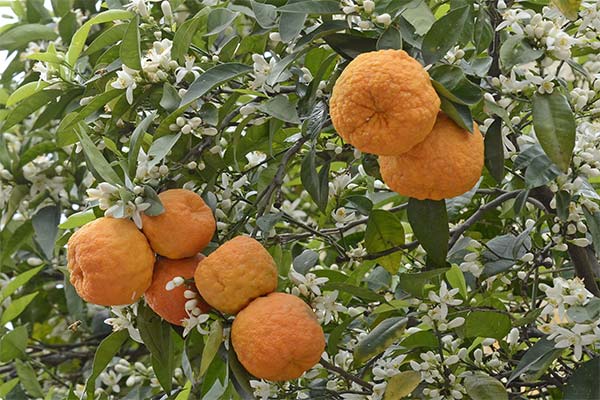
To grow for industrial purposes, the seeds of the fruit are planted in greenhouses or greenhouses. The soil should be well processed and fertilized with mineral complexes. The seeds germinate fairly quickly and amicably - in a couple of weeks there will be sprouts. Sprouted seeds germinate even faster. Immediately after sprouting, young seedlings are provided with regular moisture and airing. Most often, one seed will produce two sprouts.
After the appearance of several true leaves, the seedlings are planted, determining a sufficient feeding area for each one. The bitter orange is cultivated in greenhouses for three seasons. The hardened plants are planted in the open ground, fulfilling all the necessary agro-technical measures. The first years young trees are covered for the winter.
Trees do not need pruning, like other citrus cultures. You only need to remove dried branches in a timely manner. Growing a Pomeranian is not difficult, as the plant is not demanding in care.
Its use in Oriental medicine
Aromatherapy with the addition of essential oils of orange blossom is widely used in the East for the complex treatment of many diseases. This is a common cold, rheumatism, arthritis and even dementia. The oils are also used in Ayurvedic practice. Thus, therapeutic massage with heated citrus oil helps get rid of prostatitis, some male diseases, spinal hernia.
In addition to healing massages, Oriental healers recommend using a tincture of orange blossom. And to improve health, in nervous disorders and depressions patients in the East drink hot fragrant tea with the addition of bitter orange. This is considered not just a treatment, but a real, effective and healthy ritual.
Of course, in Eastern countries, women widely use essential oils of orange bitter as components of home cosmetics. They add them to homemade creams, lotions and eye gels, as well as in hair care products. The oil moisturizes and nourishes the skin, making it smooth and silky. Hair becomes strong, thick and shiny after using orange blossom extract.
«Important: All information on this site is provided for informational purposes only. for informational purposes only. Please consult with your health care professional before using any of the recommendations. specialist before using any of the recommendations. Neither the editors nor the authors shall be liable for any possible harm caused by materials."

